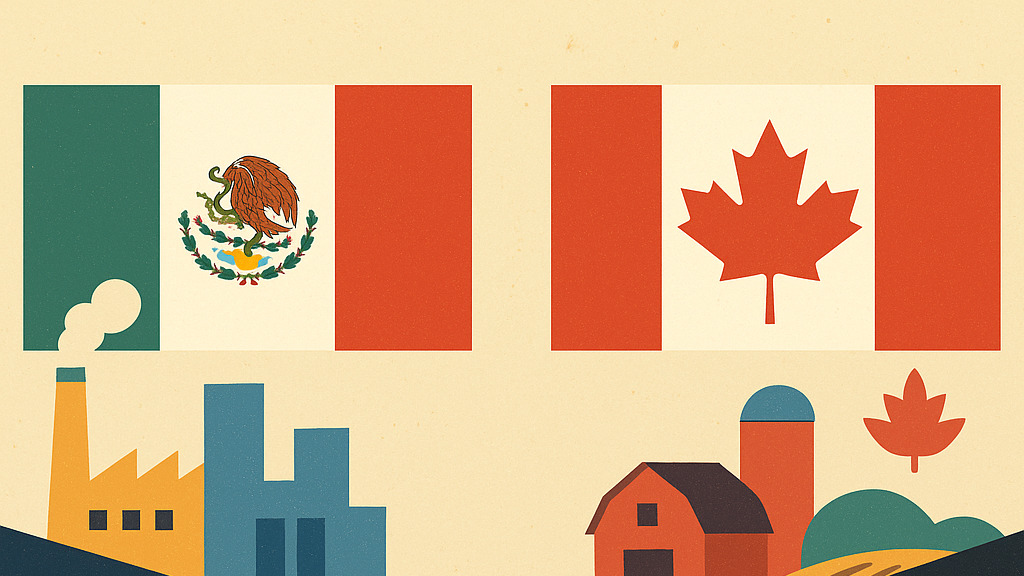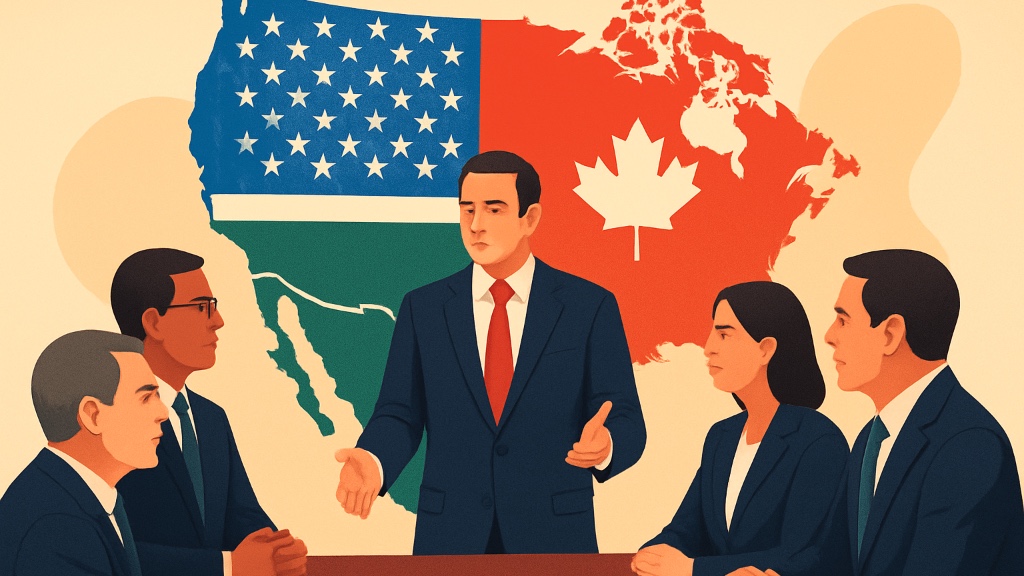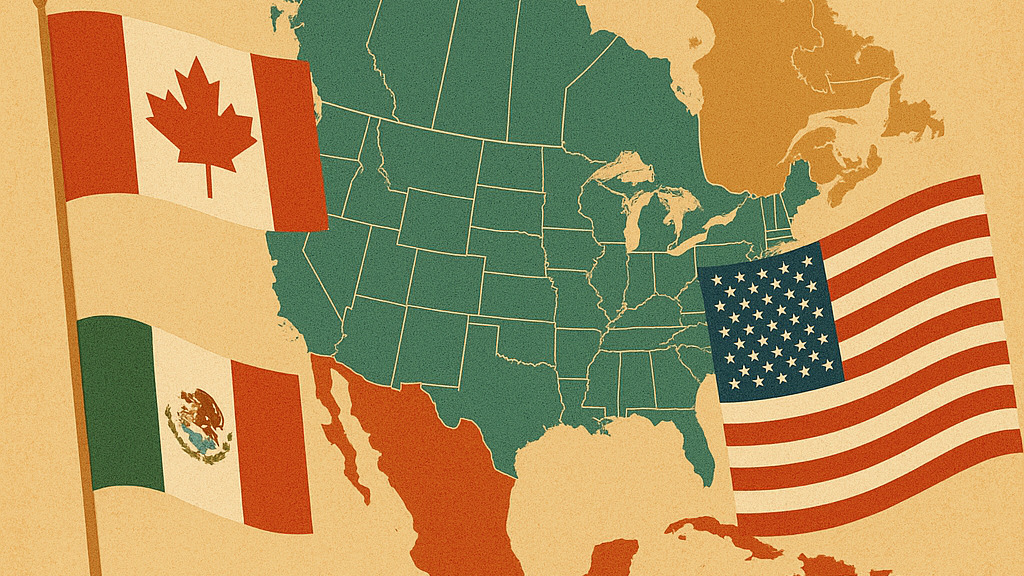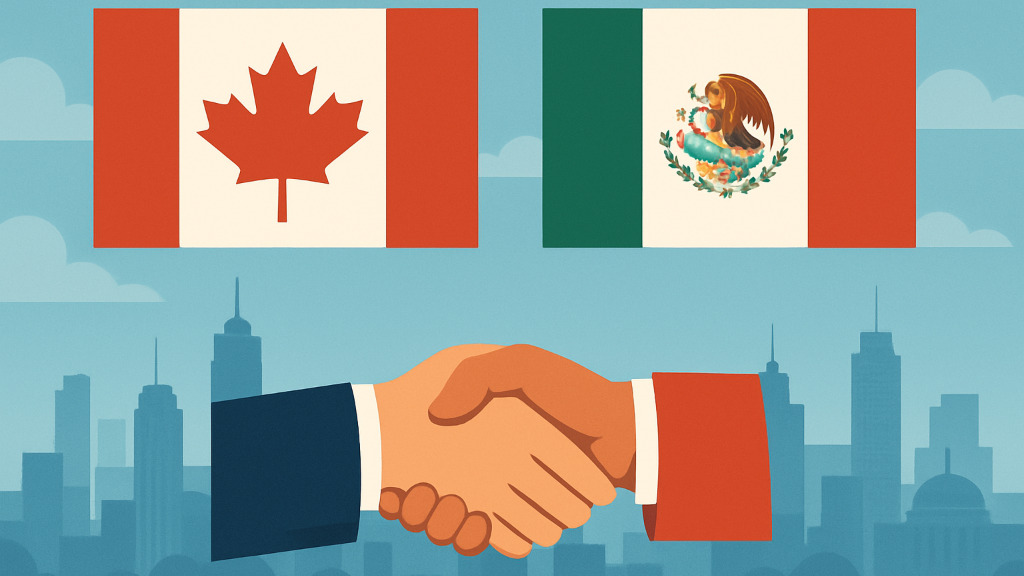Mexico and Canada: a new chapter in the T-MEC alliance
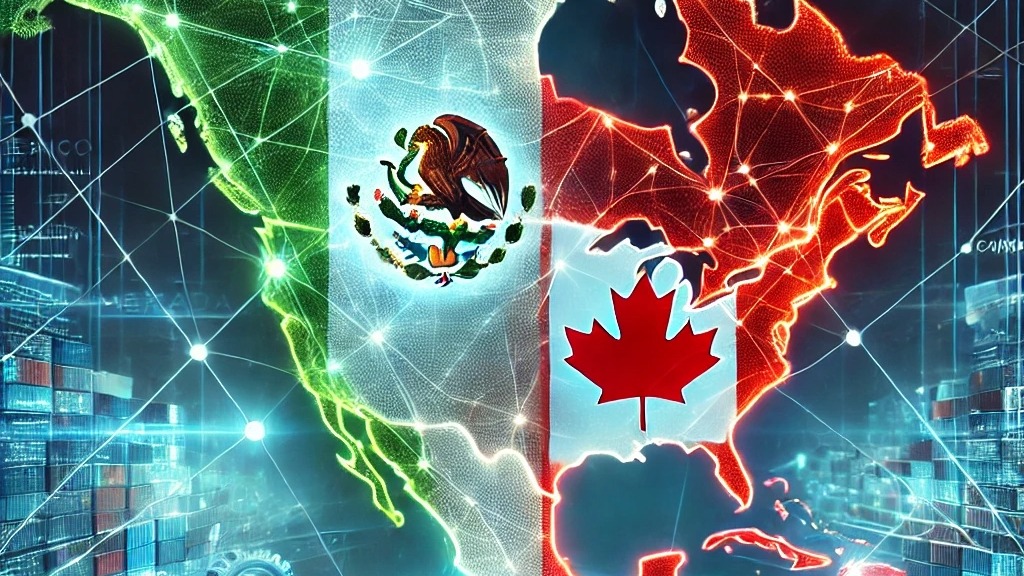
In 2026, the Treaty between Mexico, the United States and Canada will be revised and our country begins to form strategic alliances to defend it with its Canadian counterpart.
Mexico will initiate a review process of the Mexico-United States-Canada Agreement (T-MEC) with Canada. This process is part of a broader effort to strengthen trade relations between the three countries and move towards greater productive integration in North America.
The Mexican delegation, which will travel to Ottawa and Washington, will seek to build strategic coalitions with businessmen and key players in the sector, especially given the possibility of a change of administration in the United States after the November presidential elections.
The T-MEC, which has a formal review deadline of 2026, is seen as an essential pillar for the economies of the three countries. Mexico, in particular, has shown interest in preserving the agreement with few modifications, maintaining the foundations that have allowed for trade cooperation and growth in key sectors.
The Canadian government, under the leadership of Justin Trudeau, will continue its administration until 2025, which gives stability to the ongoing negotiations, unlike the political uncertainty in the United States, where a change of government could impact the talks.
From a business perspective, the review process presents clear strengths for Mexico. First, the agreement has consolidated North America as one of the largest trading blocs in the world, generating significant opportunities for Mexican exports.
Mexico's position as a key partner in the regional supply chain allows it to benefit from rules of origin that favor local production.
In addition, the Mexican government's commitment to increase domestic content in exports, seeking to raise it from the current 20% to 40 or 50%, could position the country as a more competitive player on the global stage.
However, this outlook also presents some weaknesses for the Mexican market. Mexico's dependence on exports to the United States remains high, and any abrupt change in U.S. trade policies, especially if Donald Trump retakes the presidency, could jeopardize the progress made. The possible renegotiation of the T-MEC by the United States, as suggested by Trump, could introduce changes that disadvantage Mexico, particularly in areas such as agricultural trade or rules of origin. Political uncertainty is a factor that could affect the stability of investments and the strategic decisions of Mexican companies.
Despite these weaknesses, Mexico has great opportunities in sight. The government's focus on strategic sectors such as semiconductors, electric cars, batteries, rare minerals and medical equipment could be key to attracting investment and strengthening the country's industrial capabilities.
The intention of Canada and the United States to move certain production from Asia to North America opens a window for Mexico to become a preferred supplier within the region. The growing trade tensions between the United States and China, and the desire of companies to diversify their supply chains, are opportunities that Mexico can take advantage of if it can consolidate a robust and proactive industrial policy.
Still, the threats to the Mexican market should not be underestimated. The possible revision of the agreement by the United States under a more protectionist administration represents a significant risk. In addition, global competition in key sectors, such as semiconductors and advanced technology, is fierce, and Mexico will need to invest in training, technology and development to remain competitive.
Dependence on critical inputs from Asia, which still persists in many industrial sectors, is another threat that the country will have to face if it seeks to reduce its vulnerability and increase local content in its exports.
In this context, the Mexican government's position is clear: the preservation of the T-MEC with few modifications is a priority, and alliances with business actors in both Canada and the United States will be key to its success.
During the recent U.S.-Mexico CEO Dialogue, the event was seen as a starting point for the defense of the agreement in the upcoming negotiations. The Secretary of Economy, Marcelo Ebrard, emphasized the importance of this forum as a space to encourage investment and guarantee a prosperous future for the three countries. However, the Mexican market must be prepared to face the challenges that will arise in the coming years, both in terms of political changes and global economic transformations.
Collaboration: Editorial Auge.

